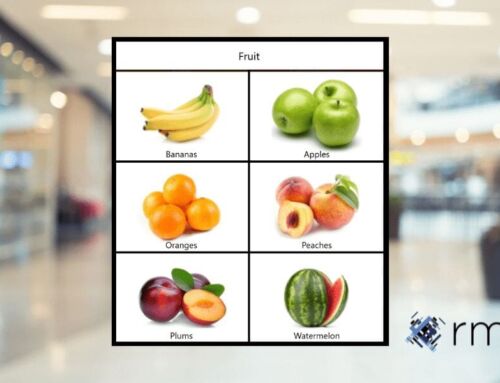Author
Tommy Chapman
Share
The Season of Giving

The Christmas holiday is by far the biggest shopping holiday in the United Kingdom and of course for many other countries around the world.
Christmas shopping in the UK accounts for over £20 billion worth of spending from consumers. From decorations to presents, food and drink to parties and cards, many shoppers will save all year for Christmas shopping. Those residing in London plan to spend the most over the holiday season, sitting at £536 each on average. Northern Ireland came in second at £451 followed by those in Scotland at £417.
Who does the Christmas Shopping?
With so many people celebrating Christmas, the shopping is fairly equal across gender as well as many of the age ranges although the amount each demographic is planning to spend tends to vary.
Some of the statistics about who is buying for the Christmas season in the UK include:
- While the percentage of men and women that shop for Christmas is fairly equal, men tend to spend more with an average spend of over £410 for men and £373 for women in the UK
- Generation X account for highest spending with an average of £425
- Millennials will spend the second most with a UK average of £416
- The lowest spending amount is with Baby Boomers who will spend an average of £350

What Are Consumers Most Likely to Buy for Christmas?
The Christmas season offers sales on everything from clothing and toys to gift packages, making it one of the most diverse purchasing holidays of the year. But even with the wide variety of gift options available, most Christmas purchases fall into one of the categories listed below.
- 61% of adults will purchase clothing and accessories
- 30% of consumers will spend money on electronics
- 20% of buyers will simply give cash as a gift
- Gift card purchases are made by 56% of all shoppers
- 44% of shoppers will buy some form of media items such as games, books or music
- Toys are bought by 42% of all shoppers
- Food or confectionery purchases are made by 31% of buyers
- Personal care and health and beauty items will be purchased by 25% of shoppers
- 21% of those buying Christmas gifts will purchase one or more pieces of jewellery
- 20% of shoppers will buy something in furnishing or home décor
- The sporting goods and leisure account for 17% of shoppers making a purchase

How do consumers pay for their purchases?
With the large volume of money spent for Christmas, there are many different ways in which buyers will choose to fund their purchases. The two top ways in which buyers will pay for their purchases is by credit card or savings, though the use of each varies in each demographic. Most gift-givers (81.5%) will be tapping into their savings to pay for some or all of their purchases. Almost two in five (38.5%) will be using their credit cards and 12.6% will take out a short-term payday loan. Just under one in 10 (9.1%) will use a personal loan and some will also be borrowing from friends and family (8.9%) to pay for gifts this year.
Almost three in five Christmas shoppers (57.3%) will be using their savings for all of their gift purchases, while 14.3% will be expensing all of their gifts on plastic.
What do people spend on decorations and parties?
Christmas purchases are not limited to buying gifts, during the holiday season consumers will spend a large amount of their budgets on things for parties and events such as food and drink and they will also spend a portion of their budget on Christmas trees and other decorations.
On average UK consumers will each spend £32 on decorations and £225 on food and drink for the season.
Lesser known facts about Christmas shopping
While it seems like there may be nothing left to find out about Christmas shopping, here are some facts that just might surprise you.
- The average shopper will spend around £100 on themselves during Christmas shopping
- Some of the tactics that retailers use to entice consumers into their store include visual tricks, gift offers and notices that the sale is ending soon
- The busiest shopping day is not Black Friday but the Saturday before Christmas
- Retailers lose millions due to return fraud with the highest rate being the return of stolen merchandise
- Shoppers who are single will make impulse purchases 45% more often than married ones
- 46% of all holiday shopping is now online
- 12% of UK shoppers will do all of their Christmas shopping at the last minute
- Chocolate is the number one gift for adults in the UK with the top gift for teenagers being books or money
- December 15th through to the 24th will account for 40% of all Christmas sales
- Christmas shopping can account for up to 30% of all retail sales
- 21% of shoppers will do their shopping via a mobile device
- There is an increase of waste of around 25% over the Christmas season
In Conclusion
Christmas shopping continues to rise year after year, with sales rising there seems to be no slow down to the amount of spending that consumers are willing to make.
Whether consumers save all year to make their Festive season one that they will never forget or put themselves into debt to complete their Christmas shopping, many people will continue to celebrate the season by over-spending.
While this level of spending may not be ideal for those who are exceeding their means, Christmas shopping is definitely an important part of the economy and the retail sector in the UK relies on it.
Key Terms
Share:
Sign up now for news and special offers!
Join our Newsletter
*We are collecting your email information in order to add you to our newsletter recipient list. You can unsubscribe from our communications at any time. You can do this by contacting us or by clicking the unsubscribe button on any of our communications with you.
You can find more information about the details we hold about you and the way we use them in our privacy policy, and you can access this here or we can send you a copy.




